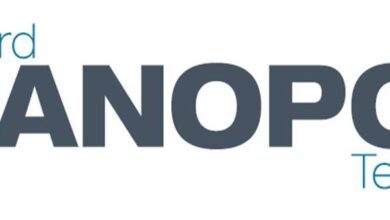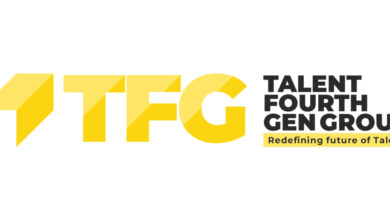The Marcus Corporation Reports Fourth Quarter and Full Year Fiscal 2020 Results

As recovery from the COVID-19 pandemic continues, the company’s balance sheet and liquidity remain strong
MILWAUKEE–(BUSINESS WIRE)–The Marcus Corporation (NYSE: MCS) today reported results for the fourth quarter and full year fiscal 2020 ended December 31, 2020.
Fourth Quarter Fiscal 2020 Highlights
- Total revenues for the fourth quarter of fiscal 2020 were $36,704,000 compared to total revenues of $206,862,000 for the fourth quarter of fiscal 2019.
- Operating loss was $55,173,000 for the fourth quarter of fiscal 2020, compared to operating income of $13,379,000 for the prior year quarter.
- Net loss attributable to The Marcus Corporation was $39,022,000 for the fourth quarter of fiscal 2020, compared to net earnings attributable to The Marcus Corporation of $7,802,000 for the same period in fiscal 2019.
- Net loss per diluted common share attributable to The Marcus Corporation was $1.29 for the fourth quarter of fiscal 2020, compared to net earnings per diluted common share attributable to The Marcus Corporation of $0.25 for the fourth quarter of fiscal 2019.
- Adjusted net loss attributable to The Marcus Corporation was $36,913,000 for the fourth quarter of fiscal 2020, compared to Adjusted net earnings attributable to The Marcus Corporation of $10,469,000 for the fourth quarter of fiscal 2019.
- Adjusted net loss per diluted common share attributable to The Marcus Corporation was $1.22 for the fourth quarter of fiscal 2020, compared to Adjusted net earnings per diluted common share attributable to The Marcus Corporation of $0.33 for the prior year quarter.
- Adjusted EBITDA was a loss of $27,770,000 for the fourth quarter of fiscal 2020, compared to Adjusted EBITDA of $36,710,000 for the comparable prior year period.
- Adjusted net earnings (loss) attributable to The Marcus Corporation, Adjusted net earnings (loss) per diluted common share attributable to The Marcus Corporation and Adjusted EBITDA reflect adjustments made by the company to eliminate the impact of a nonrecurring income tax adjustment and certain nonrecurring income, expenses and impairment charges during the fourth quarter of fiscal 2020, as well as the unfavorable impact of new theatre preopening expenses, an impairment charge and certain nonrecurring preopening expenses and initial startup losses related to the conversion of the former InterContinental Milwaukee hotel into Saint Kate® – The Arts Hotel, during the fourth quarter of fiscal 2019.
Full Year Fiscal 2020 Highlights
- Total revenues for fiscal 2020 were $237,688,000 compared to total revenues of $820,863,000 for fiscal 2019.
- Operating loss was $178,422,000 for fiscal 2020 compared to operating income of $68,191,000 for fiscal 2019.
- Net loss attributable to The Marcus Corporation was $124,843,000 for fiscal 2020, compared to net earnings attributable to The Marcus Corporation of $42,017,000 for fiscal 2019.
- Net loss per diluted common share attributable to The Marcus Corporation was $4.13 for fiscal 2020, compared to net earnings per diluted common share attributable to The Marcus Corporation of $1.35 for fiscal 2019.
- Adjusted net loss attributable to The Marcus Corporation was $125,087,000 for fiscal 2020, compared to Adjusted net earnings attributable to The Marcus Corporation of $50,278,000 for fiscal 2019.
- Adjusted net loss per diluted common share attributable to The Marcus Corporation was $4.13 for fiscal 2020, compared to Adjusted net earnings per diluted common share attributable to The Marcus Corporation of $1.61 for fiscal 2019.
- Adjusted EBITDA was a loss of $71,574,000 for fiscal 2020, compared to Adjusted EBITDA of $155,170,000 for fiscal 2019.
- Adjusted net earnings (loss) attributable to The Marcus Corporation, Adjusted net earnings (loss) per diluted common share attributable to The Marcus Corporation and Adjusted EBITDA reflect adjustments made by the company to eliminate the impact of a favorable income tax adjustment and certain nonrecurring income, expenses and impairment charges during fiscal 2020, as well as the unfavorable impact of new theatre preopening expenses and acquisition and preopening expenses related to the Movie Tavern acquisition, an impairment charge and certain nonrecurring preopening expenses and initial startup losses related to the conversion of the former InterContinental Milwaukee hotel into Saint Kate® – The Arts Hotel, during fiscal 2019.
“Without question, 2020 was the most challenging year in our history, with the COVID-19 pandemic significantly impacting our businesses and the industries in which we compete,” said Gregory S. Marcus, president and chief executive officer of The Marcus Corporation. “Our team continues to do an outstanding job of responding to every challenge thrown their way, prioritizing the health and safety of each other, our guests and the communities we serve, while innovating new, creative ways to safely and enjoyably return to our theatres, hotels and restaurants. As we ended 2020 and turned the corner into 2021, improving COVID-19 conditions in our markets, significant progress related to the vaccines, along with growing consumer confidence gives us encouragement that better days are ahead. Our strong balance sheet and liquidity provide us with the financial flexibility to sustain operations as the recovery continues in 2021.”
During the fourth quarter, new state and local restrictions in several markets required the temporary reclosure of several theatres, resulting in 52% of theatres being open as of December 31, 2020. As of the date of this release, many of those restrictions have since been lifted with nearly 70% of theatres now open. The remaining temporarily closed theatres are ready to quickly reopen as additional restrictions are lifted, new films are released on a regular basis and demand returns.
In response to the COVID-19 pandemic, the theatre division introduced Marcus Private Cinema in the fourth quarter. Guests can reserve an entire auditorium for up to 20 people, offering a safe, fun and stress-free social gathering opportunity for a flat fee. As program awareness increased during the first two months of 2021, sales attributable to Marcus Private Cinema have exceeded expectations, helping to partially offset reduced traditional attendance. Moviegoers also continue to enjoy food and beverage experiences, as average concession revenues per person increased over 10% compared to the fourth quarter of fiscal 2019.
“During the fourth quarter and first two months of 2021, theatre attendance has been increasing gradually as we have been able to offer guests a greater number and variety of films, an encouraging sign that moviegoers continue to gain confidence in returning to theatres,” said Rolando Rodriguez, chairman, president and chief executive officer of Marcus Theatres. “We attribute this improvement to our innovative programming, such as Marcus Private Cinema, growing awareness of our safety and sanitation measures, and pent up demand for a return to normalcy. We are very encouraged by the recent record-breaking performance of theatres in markets such as China and Japan, where the impact of the COVID-19 pandemic has lessened. We are also encouraged by the recent news that government-imposed restrictions in New York City, one of the world’s largest movie markets, are beginning to lift. This bodes well for continued recovery in the U.S. as vaccination rates increase and the pandemic recedes.”
While the film release schedule continued to change, several films generated box office interest in the fourth quarter, including “The Croods: A New Age,” “Wonder Woman 1984,” and “The War with Grandpa.” As a greater portion of the population gets vaccinated, demand for out-of-home entertainment is expected to increase with studios beginning to release new high-quality films to theatres. The film slate for the remainder of 2021, which now includes multiple films originally scheduled for 2020, is currently expected to be very strong, particularly during the second half of the year. Just a few highly anticipated films currently scheduled for 2021 include: “Godzilla vs. Kong,” “Black Widow,” “Fast & Furious 9,” “In the Heights,” “Top Gun: Maverick,” “Minions: The Rise of Gru,” “The Suicide Squad,” “The King’s Man,” “A Quiet Place II,” “Death on the Nile,” “Dune,” “No Time To Die,” “Ghostbusters: Afterlife,” Mission Impossible 7,” “West Side Story,” “Spider-Man: No Way Home,” The Untitled Matrix Film, and “Sing 2.” The early list of films scheduled to be released during fiscal 2022 also appears quite strong.
All eight Marcus Hotels & Resorts company-owned hotels were open as of December 31, 2020, as well as nine out of 10 managed hotels and other properties. The majority of the company’s restaurants and bars were also open. Despite the challenges presented by the pandemic, Marcus Hotels & Resorts’ properties significantly outperformed its segment of the hotel industry and its competitive sets during fiscal 2020.
Demand continues to be driven by the “drive-to leisure” market, with Grand Geneva® Resort & Spa and Timber Ridge Lodge & Waterpark in Lake Geneva, Wis. experiencing the highest demand among our hotels, particularly on weekends as guests sought outdoor and golf experiences during the summer and ski experiences during the winter. “Across our portfolio, occupancy has continued to increase since the start of the pandemic,” said Michael Evans, president of Marcus Hotels & Resorts. “While the fourth quarter and first quarter are historically the slow point in the year as leisure travel slows over the winter months, we expect the pace of recovery to steadily improve as we head deeper into 2021. It is encouraging that many cultural institutions and sports teams in our markets are transitioning their operations to allow for more in-person guests and spectators. As travel increases and groups begin to plan for future events, our properties are uniquely positioned to capture increased demand.”
Group pace for fiscal 2021 is behind last year, with a large portion of that decline attributed to one-time event bookings in anticipation of Milwaukee hosting the Democratic National Convention in 2020. Many cancelled group bookings due to COVID-19 are rebooking for future dates, including the rescheduled Ryder Cup in September 2021. The division is also experiencing an increase in wedding bookings.
Throughout 2020, the company’s owned or managed hotels were feted by many travel industry awards for exceptional service and amenities, including the coveted Condé Nast 2020 Readers Choice Awards. Saint Kate – The Arts Hotel in Milwaukee was voted the #6 Top Hotel in the Midwest, while The Pfister® Hotel in Milwaukee was voted the #8 Top Hotel in the Midwest. The Grand Geneva Resort & Spa in Lake Geneva, Wis. was voted the #20 Top Resort in the Midwest and West, and The Garland was voted the #14 Top Hotel in Los Angeles. Additional 2020 “best of” recognitions were received from prestigious organizations such as USA Today, Travel & Leisure, U.S. News, Booking.com, The Knot, AAA and Trip Advisor.
Balance Sheet and Liquidity
Throughout The Marcus Corporation’s 85-year history, the company has prioritized maintaining a strong balance sheet. As of December 31, 2020, the company’s debt-to-capitalization ratio was 37%, which is equal to or lower than the same ratio during seven of the last 10 fiscal year-ends. The company’s liquidity also remains strong, with approximately $227 million in cash and revolving credit availability at year end.
“Our real estate ownership provides a significant advantage to us relative to our peers, as it keeps our monthly fixed lease payments low and provides substantial underlying credit support for our balance sheet,” said Douglas Neis, executive vice president, chief financial officer and treasurer. “It also provides us an opportunity to monetize select real estate if opportunities arise.” In the fourth quarter of fiscal 2020, the company realized proceeds from the sale of two land parcels and a former budget theatre and at year-end the company had letters of intent or contracts to sell several additional pieces of real estate.
In addition to receiving anticipated income tax refunds during the fourth quarter, the company was awarded various state grants, the majority of which was received in January 2021. The company expects to receive additional prior year income tax refunds early in 2021 and recently was awarded and received an additional state grant. Looking ahead, the company anticipates an additional income tax refund later in the year when the fiscal 2020 tax return is filed.
Conference Call and Webcast
The Marcus Corporation management will hold a conference call today, Thursday, March 4, 2021 at 10:00 a.m. Central/11:00 a.m. Eastern time. Interested parties may listen to the call live on the internet through the investor relations section of the company’s website: www.marcuscorp.com or by dialing 1-574-990-3059 and entering the passcode 7068338.
A telephone replay of the conference call will be available through Thursday, March 11, 2021, by dialing 1-855-859-2056 and entering passcode 7068338. The webcast will be archived on the company’s website until its next earnings release.
Non-GAAP Financial Measures
Adjusted net earnings (loss) attributable to The Marcus Corporation, Adjusted net earnings (loss) per diluted common share attributable to The Marcus Corporation and Adjusted EBITDA have been presented in this press release as supplemental measures of financial performance that are not required by, or presented in accordance with, GAAP. The company defines Adjusted net earnings (loss) attributable to The Marcus Corporation as net earnings (loss) attributable to The Marcus Corporation adjusted to eliminate the impact of certain items that the company does not consider indicative of its core operating performance and the tax effect related to those items. The company defines Adjusted net earnings (loss) per diluted common share attributable to The Marcus Corporation as Adjusted net earnings (loss) attributable to The Marcus Corporation divided by diluted weighted average shares outstanding. The company defines Adjusted EBITDA as net earnings (loss) attributable to The Marcus Corporation before investment income or loss, interest expense, other expense, gain or loss on disposition of property, equipment and other assets, equity earnings or losses from unconsolidated joint ventures, net earnings or losses attributable to noncontrolling interests, income taxes and depreciation and amortization, adjusted to eliminate the impact of certain items that the company does not consider indicative of its core operating performance. Reconciliations of these measures to the equivalent measures under GAAP are set forth in the attached tables.
Adjusted net earnings (loss) attributable to The Marcus Corporation, Adjusted net earnings (loss) per diluted common share attributable to The Marcus Corporation and Adjusted EBITDA are key measures used by management and the company’s board of directors to assess the company’s financial performance and enterprise value. The company believes that Adjusted net earnings (loss) attributable to The Marcus Corporation, Adjusted net earnings (loss) per diluted common share attributable to The Marcus Corporation and Adjusted EBITDA are useful measures, as they eliminate certain expenses that are not indicative of the company’s core operating performance and facilitate a comparison of the company’s core operating performance on a consistent basis from period to period. The company also uses Adjusted EBITDA as a basis to determine certain annual cash bonuses and long-term incentive awards, to supplement GAAP measures of performance to evaluate the effectiveness of its business strategies, to make budgeting decisions, and to compare its performance against that of other peer companies using similar measures. Adjusted net earnings, Adjusted diluted earnings per share and Adjusted EBITDA are also used by analysts, investors and other interested parties as performance measures to evaluate industry competitors.
Adjusted net earnings (loss) attributable to The Marcus Corporation, Adjusted net earnings (loss) per diluted common share attributable to The Marcus Corporation and Adjusted EBITDA are non-GAAP measures of the company’s financial performance and should not be considered as alternatives to net earnings (loss) or diluted earnings (loss) per share as a measure of financial performance, or any other performance measure derived in accordance with GAAP and they should not be construed as an inference that the company’s future results will be unaffected by unusual or non-recurring items. Additionally, Adjusted net earnings (loss) attributable to The Marcus Corporation and Adjusted EBITDA are not intended to be measures of liquidity or free cash flow for management’s discretionary use. In addition, these non-GAAP measures exclude certain non-recurring and other charges. Each of these non-GAAP measures has its limitations as an analytical tool, and you should not consider them in isolation or as a substitute for analysis of the company’s results as reported under GAAP. In evaluating Adjusted net earnings (loss) attributable to The Marcus Corporation, Adjusted net earnings (loss) per diluted common share attributable to The Marcus Corporation and Adjusted EBITDA, you should be aware that in the future the company will incur expenses that are the same as or similar to some of the items eliminated in the adjustments made to determine Adjusted net earnings (loss) attributable to The Marcus Corporation, Adjusted net earnings (loss) per diluted common share attributable to The Marcus Corporation and Adjusted EBITDA, such as acquisition expenses, preopening expenses, accelerated depreciation, impairment charges and other adjustments. The company’s presentation of Adjusted net earnings (loss) attributable to The Marcus Corporation, Adjusted net earnings (loss) per diluted common share attributable to The Marcus Corporation and Adjusted EBITDA should not be construed to imply that the company’s future results will be unaffected by any such adjustments. Definitions and calculations of Adjusted net earnings (loss), Adjusted diluted earnings (loss) per share and Adjusted EBITDA differ among companies in our industries, and therefore Adjusted net earnings (loss), Adjusted diluted earnings (loss) per share and Adjusted EBITDA disclosed by the company may not be comparable to the measures disclosed by other companies.
About The Marcus Corporation
Headquartered in Milwaukee, The Marcus Corporation is a leader in the lodging and entertainment industries, with significant company-owned real estate assets. The Marcus Corporation’s theatre division, Marcus Theatres®, is the fourth largest theatre circuit in the U.S. and currently owns or operates 1,097 screens at 89 locations in 17 states under the Marcus Theatres, Movie Tavern® by Marcus and BistroPlex® brands. The company’s lodging division, Marcus® Hotels & Resorts, owns and/or manages 18 hotels, resorts and other properties in eight states. For more information, please visit the company’s website at www.marcuscorp.com.
Certain matters discussed in this press release are “forward-looking statements” intended to qualify for the safe harbors from liability established by the Private Securities Litigation Reform Act of 1995. These forward-looking statements may generally be identified as such because the context of such statements include words such as we “believe,” “anticipate,” “expect” or words of similar import. Similarly, statements that describe our future plans, objectives or goals are also forward-looking statements. Such forward-looking statements are subject to certain risks and uncertainties which may cause results to differ materially from those expected, including, but not limited to, the following: (1) the adverse effects of the COVID-19 pandemic on our theatre and hotels and resorts businesses, results of operations, liquidity, cash flows, financial condition, access to credit markets and ability to service our existing and future indebtedness; (2) the duration of the COVID-19 pandemic and related government restrictions and social distancing requirements and the level of customer demand following the relaxation of such requirements; (3) the availability, in terms of both quantity and audience appeal, of motion pictures for our theatre division (particularly following the COVID-19 pandemic, during which the production of new movie content has essentially ceased and release dates for motion pictures have been postponed), as well as other industry dynamics such as the maintenance of a suitable window between the date such motion pictures are released in theatres and the date they are released to other distribution channels; (4) the effects of adverse economic conditions in our markets, including but not limited to, those caused by the COVID-19 pandemic; (5) the effects of adverse economic conditions, including but not limited to, those caused by the COVID-19 pandemic, on our ability to obtain financing on reasonable and acceptable terms, if at all; (6) the effects on our occupancy and room rates caused by the COVID-19 pandemic and the effects on our occupancy and room rates of the relative industry supply of available rooms at comparable lodging facilities in our markets once hotels and resorts have more fully reopened; (7) the effects of competitive conditions in our markets; (8) our ability to achieve expected benefits and performance from our strategic initiatives and acquisitions; (9) the effects of increasing depreciation expenses, reduced operating profits during major property renovations, impairment losses, and preopening and start-up costs due to the capital intensive nature of our business; (10) the effects of weather conditions, particularly during the winter in the Midwest and in our other markets; (11) our ability to identify properties to acquire, develop and/or manage and the continuing availability of funds for such development; (12) the adverse impact on business and consumer spending on travel, leisure and entertainment resulting from terrorist attacks in the United States, other incidents of violence in public venues such as hotels and movie theatres or epidemics (such as the COVID-19 pandemic); (13) a disruption in our business and reputational and economic risks associated with civil securities claims brought by shareholders; and (14) our ability to timely and successfully integrate the Movie Tavern operations into our own circuit. These statements are not guarantees of future performance and are subject to risks, uncertainties and other factors, including developments related to the COVID-19 pandemic, some of which are beyond our control and difficult to predict and could cause actual results to differ materially from those expressed or forecasted in the forward-looking statements.
Contacts
For additional information, contact:
Douglas A. Neis
(414) 905-1100




